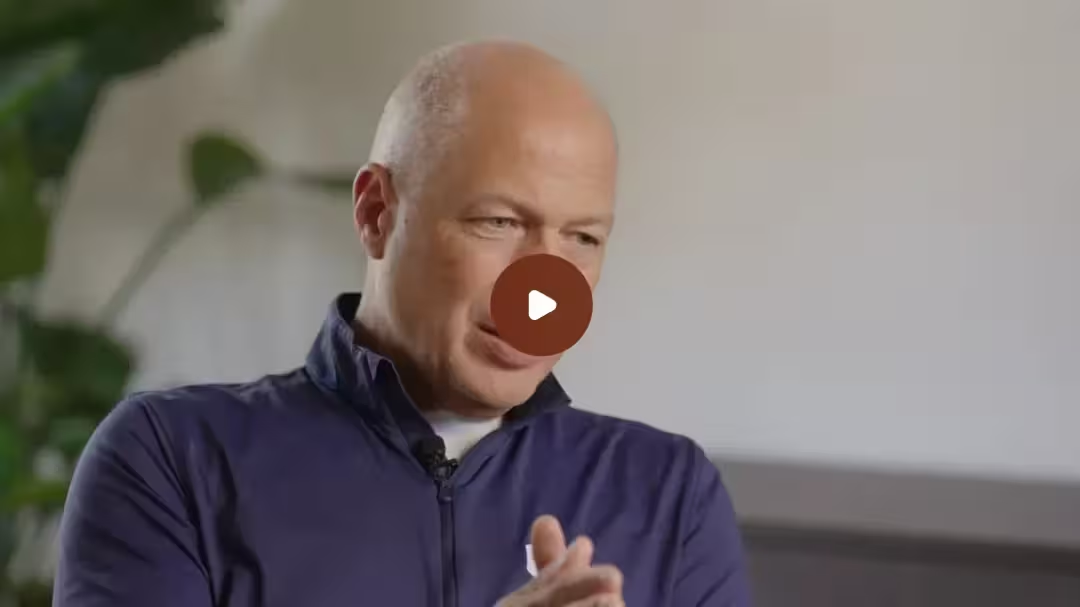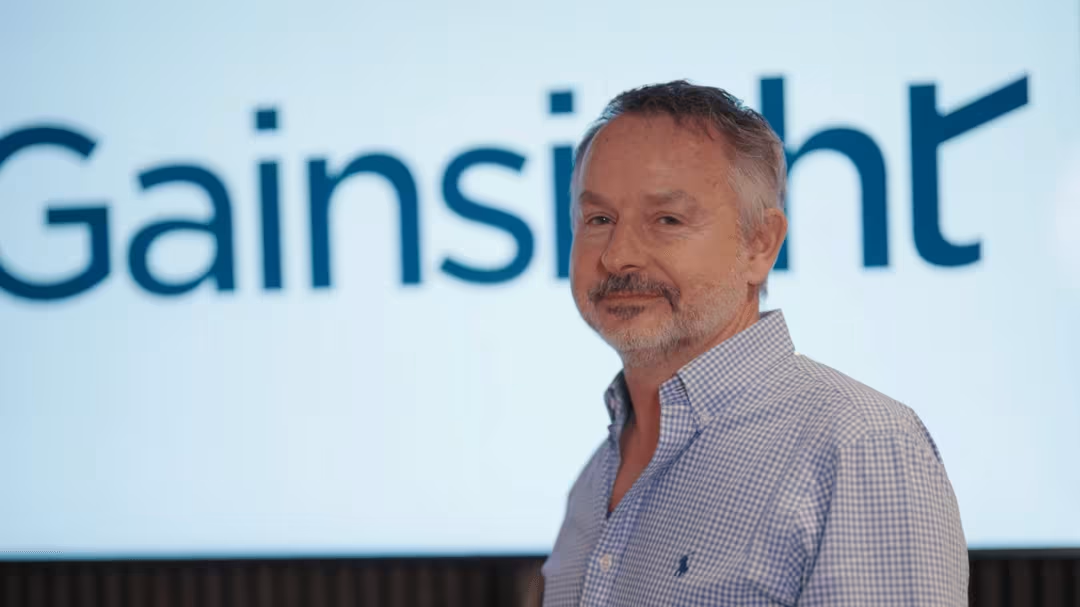
London decided to shift seasons the day I met Anna Inman, Sales Operations Director at Tungsten Network. We sat down on a picnic bench just off Cannon Street, battling the eager wind and tucking our paper napkins under our coffee mugs for fear of them being swept away. We got the first sips and some chatter under our belt. Then, accompanied by the high viz construction jackets to our right, and sensible well-cut suits to our left, the interview began...
Rory Brown (RB) - Anna, lovely to meet you. First things first, tell us about Tungsten.
Anna Inman (AI) - Our services help customers remove the pain and manual processing from their AP and AR functions. We make things simple.
RB - How long have you been in sales operations?
AI - I've been Sales Operations Director for the last two years.
RB - How did you make the transition from bid management into sales ops and what have you carried through from that role that has been beneficial?
AI - I have always reported to sales directors and been an integral part of a sales team. When I joined Tungsten Network, I reported to our Global Sales Director. A couple of years ago I took on lead generation and management after I identified some parts of our process that needed refreshing. My director trusted me to go and do that. So, it's been a gradual transition really. In September 2016 I began to set up the function.
RB - So you identified that lead management needed improvement and you essentially led that move.
AI - Yes, we were all coming to the realisation that we needed to understand how leads were coming in and how they were being processed. At the time we didn't have someone who was solely focused on that process. So that's where I came in and I looked at how we were allocating leads, how we were qualifying them and so on and improved that and introduced processes.
RB - When you first came into the role, what was your initial understanding of sales operations as a function?
AI - I hadn't worked with anyone who'd had that particular title. I had always worked with people who were probably doing that role but it wasn't labelled as Sales Ops. For example, I'd worked with the Sales and Marketing Manager previously who was covering a lot of aspects of the Sales Ops role but it wasn't recognised as Sales Ops.
So, that meant that I didn't have any expectations. Although, I knew it would be about metrics and measurements, introducing process etc. Then as I attended training and was reading around the subject to educate myself, I realised that really it was about the sales process I've been fitting into throughout my career and it isn't a whole lot different from what I had been doing in various roles. I might have fed into different parts of that sales process but it wasn't massively different from what I was doing day to day.
RB - What are the fundamentals of sales ops through your eyes?
AI - For me it's about planning, process and measurement. Put in a simple sales process that is easy to measure and these will ultimately enable you to see how successful your sales plan is for the month/quarter/year and how and where you need to change things.
RB - So you mentioned that prior to coming into your Sales Ops role, you were working with people who weren't necessarily in dedicated Sales Ops positions but had been taking on parts of that role. What sort of businesses are we talking about and how long ago was this?
AI - If I look at the job I came from at Pitney Bowes, the person I reported to there didn't have the title of Sales Ops but a lot of what they were doing was what would be considered Sales Ops based; building sales compensation plans, territory management, deal desk activities, lead generation, etc as well as their marketing role. I think the structure has since changed but that is how we operated when I was there.
RB - Moving onto your Sales Ops role, what was the first thing you wanted to achieve?
AI - I wanted to understand the data I was looking at - understand if it was clean and understand what we thought it was showing. Starting with lead gen I had to understand what a good lead looks like, is this a real lead or is someone selecting the wrong information and so on.
For me it was really understanding sales data, what our CRM was telling us and could tell us and what that could mean to the sales team. Then in parallel implementing a sales process. We always had a sales process but it was a case of formalising it in Salesforce, to be able to manage that sales process.
RB - How has that been?
AI - It's interesting. It's like any process I’ve had to implement. You have to demonstrate how it will work for the sales team and how it will help them. There are always teething issues you come across and have to troubleshoot.
You have to implement something that works now. Even if you would really like to hold off implementing once it is perfect, it’s about recognising that process building will always be an iterative activity. I think for me a learning curve is remembering that good is okay. It doesn't have to be perfect.
RB: How do you find the whole aspect of getting engagement from the sales team and sales leaders?
AI: There have been no particular issues. It's about helping them understand how it works and how it can help them. Listening to their feedback is important to me, and taking those comments into account to enhance things as needed.
RB - You've been doing this for two years now and you mentioned what you were doing at the beginning was very top of the funnel. Looking at your role now, what would you say are the core fundamentals of what you do day to day?
AI - Now it's not just about lead generation, it's about all the fundamentals of sales management; territory planning, compensation planning, pipeline management and so on.
I think a lot of the initial phases of the role were about discovery and now it's about ongoing measurement and management of the sales process.
RB - Do you get involved in forecasting as well?
AI - Yes, I am also involved in the forecasting element. Making sure people are putting in the right opportunities at the right point and that the forecasts are realistic.
RB - What size is the sales team there?
AI - We have a sales team of nine with a customer relationship team who are using the system too; over 20 people.
RB - Some people in your role just focus on the sales side and some move all the way into CRM and CS as well. What's your position on that? Do you work with the entire commercial function?
AI - I do more work with our new buyer side of the business but it's moving more into working with the CRMs as well because we need to have the same process throughout the whole company. There might be some tweaks in how we do things but essentially the process can support their work.
RB - If you could go back in time to when you first started this role two years ago, what would be the first thing you would do and why?
AI - Maybe re-engineering things. Looking at how existing customers have come into the business. How were those sales processes managed and go backwards from that point. What happened during each point of those sales processes that worked well, and how do we learn from that and replicate the activities.
RB - So replicating the good habits?
AI: Yes. I would start from that end rather than starting from a lead end. Both approaches have their merits but I think if there was a way of re-looking at things now it would be from reviewing where we are successful.
RB - That makes a lot of sense. So starting from the end and working out where everything drops off.
AI - Yes. Now we can see each stage along the top of our opportunity record and we know where everything is. It is important to review if and where opportunities drop out of the sales cycles, how long sales stages are etc to be able to assess pipeline health.
RB - So what you're saying is you see 10 deals that are successful, and you look for a commonality in how they move through and you start to create a framework for what a sales stage represents.
AI – Exactly. Learning from those sales cycles.
RB - There's a mixture of learnings and assumptions. The assumptions you'll re-evaluate as you go on.
Moving onto technology. What tech have you employed and what’s your tech wishlist?
AI - We use Marketo for marketing automation. We have a number of other tools in place that allow us to analyse prospect behaviour. Tools like D&B Hoover and Discover Org are great for this. We also recently implemented NewVoiceMedia.
If I had unlimited budget I would implement something alongside every single stage of the sales process. There's been some interesting technology around lead generation process and how can you get those leads into the business at the right time for the customer and the right time for you. Opportunity intelligence is an interesting area to look at as well.
It doesn't make sense to buy tools all at once though. You have to learn what works in your sales process and identify the gaps. It might be that your team are great at looking at customer information. They know how to map their customers inside out. In which case you don't need a tool for it.
RB - If we look at sales operations in the UK, we are admittedly a bit behind the US, where Revenue Operations is a revered role. What's your opinion of where sales ops is today in the UK and how senior it will become over the coming years?
AI - I think more businesses are seeing the need to separate out sales ops into a specialist role within their company. I am also noticing more companies have built out entire teams. In a similar way that bid management has gone from being the side hustle of a Project Manager to being a fully-fledged function that helps drive increased sales success.
There also seems to be a lack of events and learning in the UK. I've attended the Sales Management Association conference last year in Atlanta for the last two years. The ability to learn from more senior sales ops has been invaluable. We need something like that over here. I know that there have been more groups popping up recently about sales enablement but again it seems to be more US led.
RB - How many sales leaders do you work with and what are those relationships like?
AI – I work with three sales leaders. They have very different perspectives. Two are from existing client side and the one is my direct line manager. The two sides of business have very different perspectives of how they want to use sales processes and what I'm learning from them is what are the commonalities and what are the real differences.
RB - Time for a fun question. What famous duo would you liken to a typical Sales Ops/VP Sales relationship and why?
AI - For those Greys Anatomy Fans - Meredith Grey and Cristina Yang. You have to be "the person" for each other i.e. working in partnership, enjoying the challenges and successes that sales management brings.

Want to get more insights from the sales ops leaders? Read our other posts in the sales ops interview series.
At Kluster, we're big fans of sales operations...
We recognise the growing importance of sales operations. No longer seen as the function that provides spreadsheets, sales operations is integral to building a repeatable, scalable sales machine.
That's why we built Kluster. We make analytics and forecasting systems for you so you can spend time doing what you do best: uncovering trends and delivering growth defining insights.
Kluster gives you total visibility into the effectiveness of your sales machine and helps you generate credible forecasts to revenue leaders and the board.


.svg)
.svg)
.svg)
.svg)










